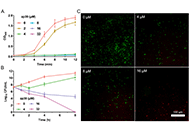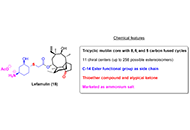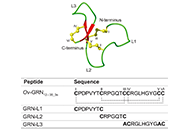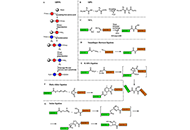4 results in Exploration of Drug Science
Latest
Sort by :
- Latest
- Most Viewed
- Most Downloaded
- Most Cited
Open Access
Original Article
A dextrorotatory residues-incorporated bioactive dodecapeptide against enterohemorrhagic Escherichia coli
Ping Zeng ... Lanhua Yi
Published: June 30, 2023 Explor Drug Sci. 2023;1:210–220
This article belongs to the special issue Bioactive Peptides discovery and development

Open Access
Review
Approved antibacterial drugs in the last 10 years: from the bench to the clinic
Miguel García-Castro ... Juan Manuel López-Romero
Published: June 30, 2023 Explor Drug Sci. 2023;1:180–209
This article belongs to the special issue Exploring Potential Drugs from Natural Products

Open Access
Original Article
Identification of an inter-cysteine loop potentially involved in the activity of Opisthorchis viverrini-granulin-1
Rozita Takjoo ... Norelle L. Daly
Published: June 30, 2023 Explor Drug Sci. 2023;1:172–179
This article belongs to the special issue Exploring Potential Drugs from Natural Products

Open Access
Review
Nature-inspired and medicinally relevant short peptides
Maria G. Ciulla ... Kamal Kumar
Published: June 27, 2023 Explor Drug Sci. 2023;1:140–171
This article belongs to the special issue Exploring Potential Drugs from Natural Products

Journal Information